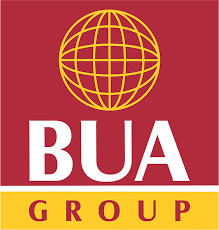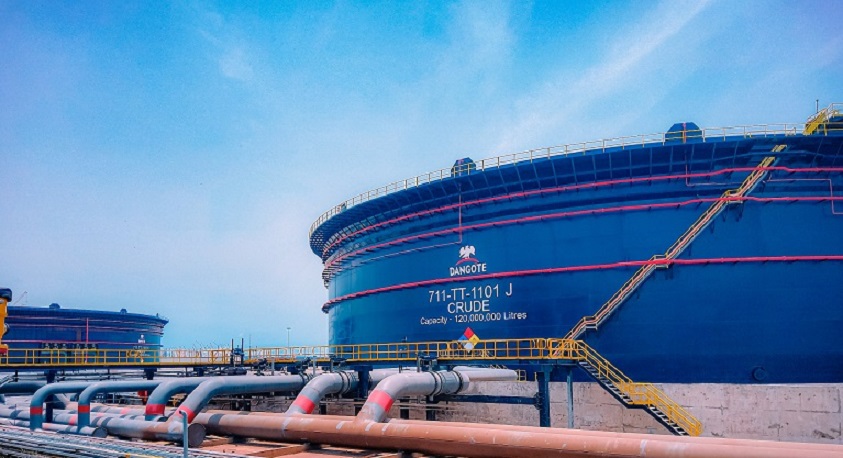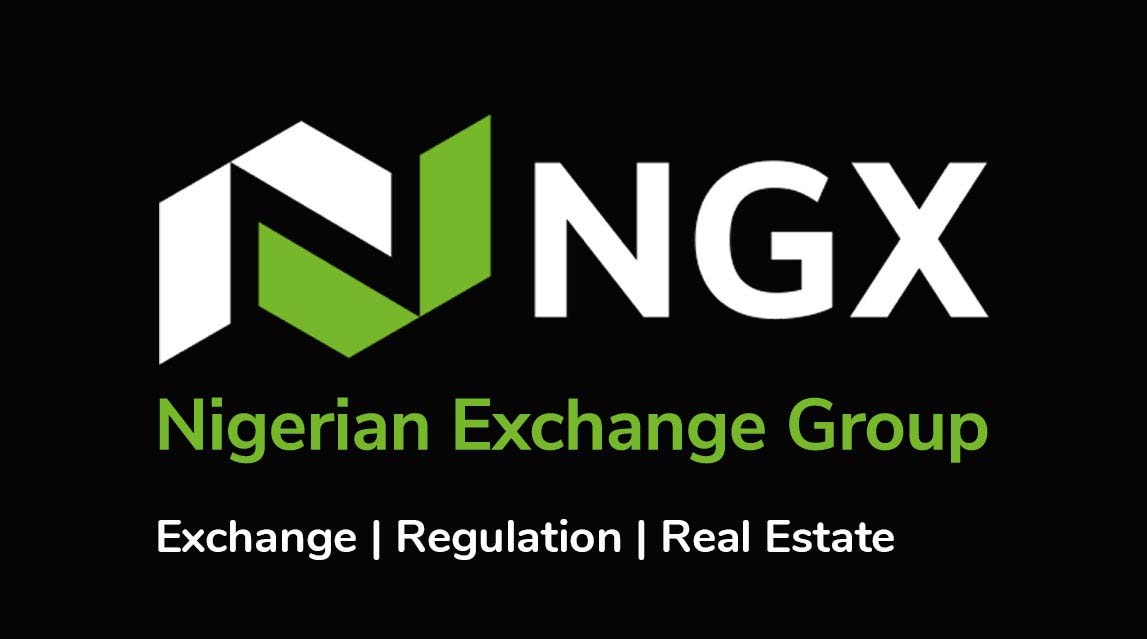Business
ONE Joins D’banj and African Partners to Launch ‘Do Agric’ at AU Summit

ADDIS ABABA – The ONE Campaign today released a new report and launched Do Agric, It Pays, a campaign calling for African governments to commit to spending at least 10% of national budgets on effective agriculture investments, through transparent and accountable budgets.
At the heart of the Do Agric campaign is an effort to push political leaders to adopt better policies that will boost productivity, increase incomes and help lift millions of Africans out of extreme poverty.
Nigerian singer-songwriter D’banj was on hand for the Do Agric, It Pays kick-off event in Addis Ababa today. Civil society partners at the launch included the Pan African Farmers Association (PAFO), ActionAid International, Acord International, Oxfam, East and Southern African Farmers Forum , ROPPA, Southern African Confederation of Agriculture Unions, the Africa Union Commission, Becho Welisho and the Alliance for Green Revolution in Africa (AGRA). Campaign champions include Tanzanian President Jakaya Kikwete, Beninois President Dr. Thomas Yayi Boni and Côte d’Ivoire footballer Yaya Touré, with Touré starring in a new ONE.
 The launch of Do Agric in Addis Ababa coincides with the 2014 January African Union (AU) summit, where heads of state have gathered to discuss key development challenges across the continent. The AU has declared 2014 the Year of Agriculture in Africa.
The launch of Do Agric in Addis Ababa coincides with the 2014 January African Union (AU) summit, where heads of state have gathered to discuss key development challenges across the continent. The AU has declared 2014 the Year of Agriculture in Africa.
“Now is the time to get our leaders to commit to a big push toward implementing effective agricultural policies, scale up public investment in agriculture and catalyze private sector participation in agriculture development,” says ONE Africa Director Dr. Sipho Moyo. “Of the more than 400 million Africans living in extreme poverty, 70% live in rural areas that depend on agriculture. Remarkably, the multiplier effect of agricultural growth in sub-Saharan Africa is estimated to be 11 times greater in reducing poverty than in other non-agriculture sectors, such as utilities and mining.(1)”
D’banj said, “There are massive untapped business opportunities in agriculture that could create jobs for millions of Africans on and off the farm. I want Africans to know that farming is not only the foundation of the economy, but also that farming is cool. I believe that, if the needed attention is given to agriculture, we Africans will not only feed ourselves, but also the rest of the world.”
“While other African leaders have made statements of good will, currently only eight countries have kept their promise to invest 10% of their national budgets in agriculture. It is therefore essential to do more, to go further. Agriculture is not only important, it is also vital. Agriculture pays,” said Yaya Touré.
A new ONE report, called Ripe for Change: The Promise of Africa’s Agricutural Transformation, calls on African governments to implement an “enhanced CAADP” package of policies to accelerate economic development in Africa through an African-led agricultural transformation agenda steered by the AU’s own CAADP (Comprehensive Africa Agriculture Development Programme). The package of policy recommendations, which was developed after a lengthy consultation process with African farmers and farmers associations from all over the continent, includes:
1) Make time-bound commitments to meet the Maputo pledge of spending at least 10% of national budgets on effective agriculture investments, through transparent and accountable budgets.
2) Eliminate the gender gap in agriculture.
3) Strengthen land governance and security of tenure rights.
4) Reduce barriers to intra-regional trade.
5) Increase R&D investment to at least 1% of agricultural GDP and bolster extension services.
6) Integrate sustainability and climate resilience into national agriculture plans.
7) Prioritise the reduction of post-harvest loss in national agriculture plans.
8) Design nutrition goals into agriculture sector strategies.
9) Foster an enabling environment for smallholder integration and responsible private sector investment.
10) Accelerate implementation of agriculture plans and ensure results for smallholder farmers.
The report also highlights recent success stories resulting from increased agriculture investment and enhanced CAADP-style policy reforms, such as those in Ghana, Ethiopia and Burkina Faso. In Ghana, agriculture is the biggest driver of poverty reduction, with initiatives such as credit reform, targeted subsidies for farmers, and new infrastructure supporting private sector investment, particularly in the cocoa sector. Perhaps no country illustrates the opportunities that agricultural investment can unlock better than Ethiopia. Three decades after experiencing a devastating famine that captured the world’s attention, the country has boosted cereal production and emerged as a leader in agricultural innovation, with an agriculture growth rate of 7% on average since 2003. In Burkina Faso, the government spends 10% of its budget on agriculture, resulting in growth rates of more than 6% per year in the sector. Following reforms, cotton production has tripled, leading to export earnings of $165 million and household income growing by between 19% and 43%.
Dr. Moyo added, “The good news is there are real success stories across the continent to build upon. These African-led successes must now be scaled, adopted and adapted across the region so that small farms can become small firms, young people can find good jobs and African economies can thrive. This virtuous cycle of agriculture-led industrialization will bring stability and prosperity across Africa. This is the future for African agriculture we can create together, if we seize the great opportunity of 2014.”
Business
BUA Group Dismisses Refinery Completion Rumours

The BUA Group has dismissed what it described as ‘misleading report stating that our 200,000 barrels/day refinery is at 90% completion’.
This was contained in a statement on its verified handle on micro-blogging site, X, on Sunday.
The company expressed pride at the ‘remarkable strides on our Akwa Ibom refinery project, we are proud to share that construction is progressing steadily.’
It also used the opportunity to offer updates on its other ongoing industrial projects.
‘The public is advised to verify any news through our official channels and platforms so as not to be misled by mischievous persons,’ it added.
ALSO READ: SERAP Urges Tinubu To Direct CCB To Publish President’s, VP’s, Others Assets
It wrote, “Contrary to a misleading report stating that our 200,000 barrels/day refinery is at 90% completion, BUA wishes to advise the public to disregard such misleading reports that did not emanate from us.
“As we make remarkable strides on our Akwa Ibom refinery project, we are proud to share that construction is progressing steadily. Whilst the refinery is not at 90% completion, we are however on track to meet our delivery timelines in collaboration with our partners. This BUA Refinery & Petrochemicals project represents a major milestone in strengthening Nigeria’s refining capacity and energy security.
“Our other energy projects, including the construction of a mini-LNG plant and several new hybrid power plants across the country to add additional capacity to our over 1,000MW installed captive power generation capacity, are also progressing rapidly.
“The public is advised to verify any news through our official channels and platforms so as not to be misled by mischievous persons.
“At BUA, we remain committed to transparency and excellence. As we have consistently done with over 12 of our completed mega industrial projects worth over $ 3.5 billion in the past 10 years, we will continue to keep you updated with verifiable and accurate information only where necessary, and as milestones are achieved. We appreciate the public’s interest and enthusiasm for this transformative project as we work together in building a stronger industrial and manufacturing base for a self-reliant Nigeria.”
Business
Affordable Petrol: Ardova, Heyden Enter Bulk Purchase Pact With Dangote Refinery

Motivated by the relief provided by President Bola Ahmed Tinubu’s crude-for-naira swap initiative, two prominent players in Nigeria’s downstream oil and gas sector — Ardova Plc and Heyden Petroleum — have gone into a bulk purchase agreement with the Dangote Petroleum Refinery.
Biztellers reports that this strategic move is designed to ensure a steady supply of petroleum products at affordable prices, with a view to further stabilising Nigeria’s fuel market and enhancing energy security.
This strategy seeks to build on the example set by MRS Oil Nigeria Plc, which had entered into a similar agreement with Dangote Refinery.
ALSO READ: One Dies Following Explosion Of Tesla Cybertruck At Trump’s Hotel In Las Vegas
As a result, MRS Oil had lowered its petrol prices to N935 per litre across all its stations nationwide, addressing the long-standing issue of price disparities between states. On the sideline, MRS Oil’s stock surged to a new 52-week high last Friday, as investors became increasingly optimistic about the company’s future earnings prospects.
It was gathered that the bulk purchase agreement with Dangote Petroleum Refinery would enable both Ardova and Heyden to secure a reliable and consistent supply of petroleum products from the world’s largest single-train refinery, ensuring a stable supply of fuel at competitive prices, benefiting consumers across the country.
The arrangement ensures that Ardova and Heyden will have access to a full range of refined products, thereby securing their operations with a reliable supply chain.
A statement from Ardova Plc underscored the importance of this agreement in fostering a more competitive environment within Nigeria’s downstream oil and gas sector.
Ardova has been a key off-taker from the Dangote Refinery since its inception, but this new framework is expected to formalise and strengthen the partnership between the two companies, creating long-term benefits for both parties.
“This framework will see Ardova Plc offtake a full slate of petroleum products from the refinery. While Ardova Plc has been a significant off-taker from the refinery since its inception, this new framework will institutionalise a more robust relationship between the two companies to further enhance the emerging competitive landscape in the downstream oil and gas industry in the country,” noted the statement.
The partnership with Dangote Refinery is poised to have a transformative impact on Nigeria’s oil and gas market. By ensuring a stable and affordable supply of fuel products in the over 1,000 retail outlets of the two companies, the agreement will help to alleviate the recurring issue of fuel scarcity that has long plagued Nigeria.
The Dangote Refinery, which began production in 2024, has already played a pivotal role in addressing these challenges. Its large-scale operations have helped alleviate the supply pressures that often lead to price hikes and fuel shortages.
During the festive season, Nigerians enjoyed a relatively smooth period, with stable fuel availability and no significant price increases at the pump. Unlike previous years, when the country faced fuel shortages and arbitrary price hikes during peak periods, the Dangote Refinery has significantly contributed to stabilising the market and maintaining price consistency.
Business
NGX Bucks 2015 To 2019 Trend, Thrives In Roaring 20s

. . . ASI Closes 2024 At +37.65%
The Nigerian Exchange Limited (NGX) has marked a remarkable turnaround, breaking away from the poor performance of the 2015–2019 period to thrive in the 2020s.
Biztellers reports that the poor run came on the heels of the oil price crash in 2015 and the ensuing recession in 2016, the 2020s have ushered in a period of unprecedented growth for Nigeria’s stock market.
ALSO READ: SERAP Urges Tinubu To Direct CCB To Publish President’s, VP’s, Others Assets
Since 2020, the NGX All-Share Index (ASI) has delivered a stellar return of 283.45%, climbing from 26,842.07 points at the end of 2019 to 102,926.40 points as of December 2024. Standout years include 2020, 2023, and 2024, as investors sought higher real returns from equities amid negative yields in the fixed-income markets. The index closed 2024 with an impressive annual growth of 37.65%.
The depreciation of the naira, driven by macroeconomic reforms by the Central Bank of Nigeria (CBN) and the Federal Government, has significantly boosted the performance of the stock market. Foreign capital inflow has steadily increased, rising from a low of 4% in mid-2023 to an average of 16% by November 2024.
Additionally, high-profile listings have energized trading activities on the exchange, providing investors with a broader range of blue-chip stocks. Notable entries include Geregu Power Plc, Transcorp Power Plc, Aradel Holdings, and BUA Foods.
These listings have propelled the market capitalization from N12.79 trillion at the end of 2019 to N62.76 trillion as of December 2024, representing a meteoric increase of N49.97 trillion.
At the Closing Gong Ceremony marking the end of 2024 trading activities, NGX’s Chief Executive Officer, Jude Chiemeka, represented by the Head of Trading and Products, Abimbola Babalola, commended key stakeholders, including the stockbroking community represented by the Chartered Institute of Stockbrokers (CIS) and the Association of Securities Dealing Houses of Nigeria (ASHON).
“The year 2024 witnessed significant activity in the secondary market, a testament to the efforts of our trading license holders. Complementary macroeconomic fundamentals were instrumental, and we appreciate the impactful policymaking by the CBN and the Federal Ministry of Finance. We also commend the Securities and Exchange Commission for its effective oversight, especially during the smooth banking recapitalization process,” he said.
CIS President and Chairman of Council, Oluropo Dada, and ASHON Chairman, Sam Onukwue, represented by the 2nd Vice Chairman, Ify Rita Ejezie, emphasized the pivotal role of stockbrokers in driving capital market growth.
They reiterated their commitment to advocating for policies that enhance market development.
Despite the impressive growth, challenges remain. According to Proshare’s 2025 market outlook, Nigeria’s capital market continues to grapple with high transaction costs, information asymmetry, monetary tightening, low trading volumes, and wide bid-ask spreads, all of which stifle liquidity.
However, the report underscores the potential of leveraging the equity market through the listing of national assets, such as NNPC, to unlock liquidity and stimulate domestic and foreign investment.
GMD/CEO of Nigerian Exchange Group, Temi Popoola, reflected on the market’s resilience and growth trajectory, thus, “Nigeria’s capital market has proven itself as a hub of resilience and innovation, consistently offering valuable opportunities for investors. The strong performance of our blue-chip companies over the past decade has been a key driver of returns, even amid challenging economic cycles. Inflationary pressures have made equities an attractive hedge, and strategic new listings have significantly boosted market activity.”
He further highlighted the transformative impact of policy reforms, “Macroeconomic shifts, particularly in the oil and gas sectors and currency devaluation, have been transformative. These changes, coupled with the liberalization of exchange rates, have enhanced operational efficiency and contributed to the robust performance of listed companies. As we approach 2025, we remain optimistic that continued reforms and a stable macroeconomic environment will sustain growth, boost liquidity, enhance investor confidence, and deliver long-term value for all market participants.”















